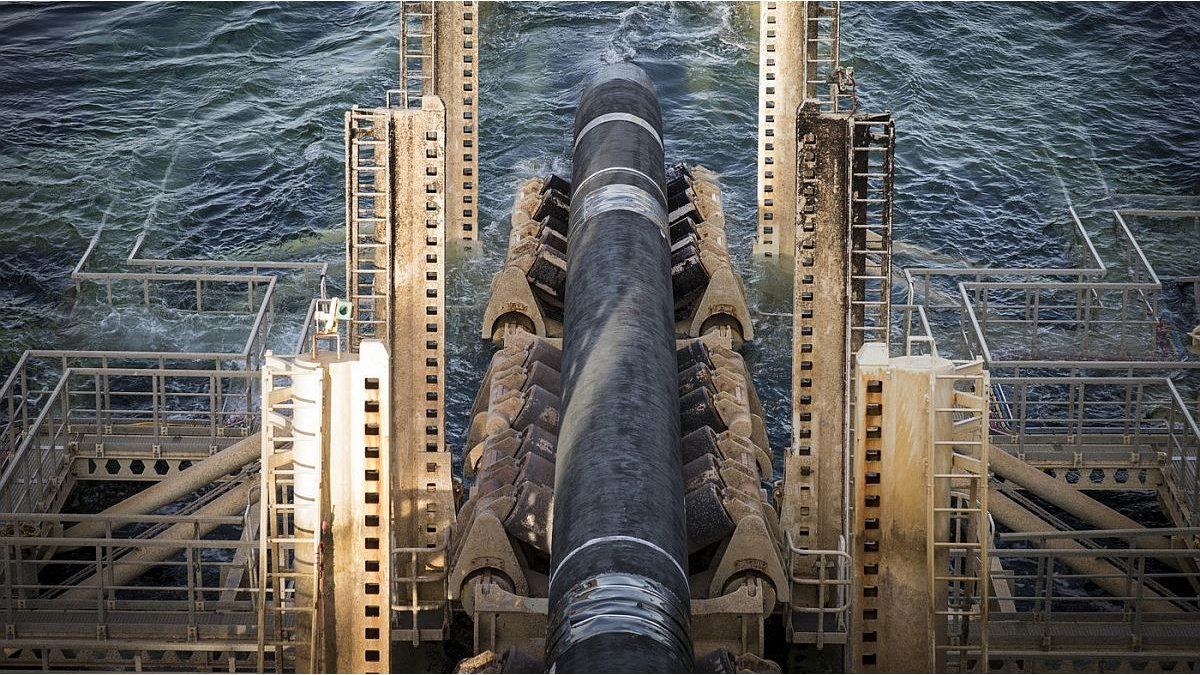In a new economic offensive against Kremlin, The European Commission will propose a reduction in the top to the price of Russian oil of US $ S60 au S45 per barrelaccording to Financial Times. In turn, the package would include the prohibition of use of gas pipeline infrastructure Nord Stream, One of the main natural gas export channels from Russia to Europe.
The sanctions, even in the proposal phase, must be approved unanimously by the 27 members of the European bloc. The initiative is part of the fourteenth package of punitive measures that Brussels promotes since the beginning of the war in Ukraine in February 2022.
European union card.jpg
Russian energy blow
The measure seeks to impact directly on the energy income of the Government of Vladimir Putin, which until now has managed to overcome a good part of the sanctions through alternative export routes and the help of countries such as China and India. However, the reduction of the price stop would imply an additional effort for buyers who want to ensure their supply without violating Western restrictions.
From Brussels they consider that the current roof of US $ S60 per barrel has lost efficacy, since Russian crude has been sold above that level in parallel markets. The proposal to take it AU $ S45 aims to reduce the Kremlin maneuver margins and force European shipping companies, insurers and banks to cut the logistics that facilitates these operations.
Nord Stream, in the sights
In parallel, the proposal includes the prohibition of the use of Nord Stream 1 and 2 infrastructure, the submarine gas pipelines that connect Russia directly with Germany through the Baltic Sea. Although they are currently out of service – one of them was the target of sabotage in 2022 – Brussels seeks to prevent them from reactivating in the future.
The intention is to structurally limit the European dependence on Russian gas, in line with the objective of energy diversification that took strength from the outbreak of the conflict in Ukraine.
What can happen to the price of oil?
While the international market has not yet reacted bluntly, analysts anticipate that a tightening of sanctions could generate upward pressure on the price of crude oil, especially if Russia responds with additional production cuts or redirects its shipments to Asia.
For economies such as Argentina, a net energy importer in several periods of the year, a sustained increase in international oil prices could be translated into higher costs for electricity generation and the price of fuels, in a context of high inflation and tax restrictions.
The political and economic impact
The decision of the European Commission, to advance in a sustained pressure strategy on Moscow, also has political implications. The unity of the block will be tested again, since some countries – such as Hungary or Slovakia – maintain narrow energy ties with Russia and could block the initiative.
In geopolitical terms, Brussels play reinforces Western alignment around Ukraine, but also opens questions about the collateral effects on the global economy, at a time when the world’s central banks fight against deceleration and energy prices are once again a critical variable.
The European Commission’s proposal to harden the sanctions against Russia marks a new chapter in the global energy conflict. If the decrease in the top of the price of crude is completed and the definitive closure of Nord Stream is advanced, the impact could feel beyond Europe, affecting both exporting countries and importers. In Argentina, where every dollar counts, a rise in the price of oil could add pressure on the economy in full transition.
Source: Ambito




